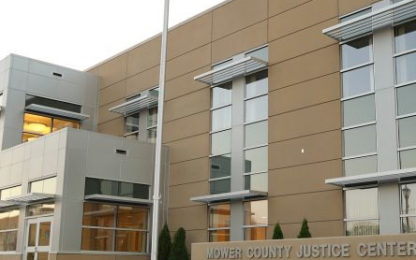Mower County sees 98 septic system replacements in 2022

Nearly 340 septic systems have been replaced in three years across Mower County as part of an initiative aimed at protecting groundwater and local waterways.
After the 2022 construction season, Mower County Environmental Services now has overseen the installation of 338 subsurface sewage treatment systems (SSTS) that replaced non-compliant systems since 2020 when the Mower County Board launched a push to accelerate SSTS compliance. In 2022, Mower County property owners installed 98 replacement septics, with the leading townships being Lansing (12), Austin (nine) and Windom (eight).
Nearly 67 percent of the new septics installed in 2022 occurred in the Cedar River watershed; with most of the other 33 percent being in the Root River watershed of eastern Mower County.
This progress follows 112 septic systems installed in 2021 and 128 systems in 2020, which was a record high, topping a previous mark of 125 systems a decade earlier.
Non-compliant septics threaten human health and the environment because they do not thoroughly or properly treat wastewater before it enters groundwater, lakes and streams, said Angela Lipelt, the county’s environmental services supervisor.
Another 17 septic systems were issued permits in 2022, with those replacements expected to be built in 2023, Lipelt said. County staff has another 23 sites scheduled for replacement installation this year that involve landowners who established escrow accounts resulting from property transfer or zoning-permit reasons.
Last year, Mower County had 94 compliance inspections done by private contractors, leading to 33 non-compliant systems being found of which four have been abandoned permanently by the owners. In 2021, the county had 30 non-compliant systems found after an SSTS ordinance was adopted that year by the Mower County Board to increase reviews of septics.
To date, Mower County has more than 4,000 properties with a septic system. The county estimates that 75 percent of those systems are in compliance with another 22 percent considered to be failing to protect groundwater and 3 percent designated as an “imminent threat to public health and safety.”
Prior to the new SSTS ordinance, the county typically found about five non-compliant systems each year, Lipelt said.
Under its SSTS program, Mower County offers some assistance to property owners that includes:
- Septic loans of up to 90 percent of the replacement system’s cost to be paid over 10 years as a tax assessment.
- Compliance-inspection vouchers (while available) if required to inspect for a land-use permit.
- Low-income grants; an qualifying example is a family of four with an annual income under $66,650.
On Feb. 22, a free workshop for SSTS contractors will be offered from 9 a.m. to noon at Austin’s Jay C. Hormel Nature Center. The Mower County and Freeborn County environmental services along with the Cedar River Watershed District are organizing the workshop featuring Dr. Sara Heger of the University of Minnesota’s On-Site Sewage Treatment Program (OSTP). The workshop provides contractors an opportunity to earn two “continuing education units” or CEUs.
Registration is required by emailing [email protected] or calling 507-377-5186.
In early 2020, the Mower County Board launched an SSTS initiative to complete the final phase of the county’s long-running efforts to achieve septic compliance countywide.
Some changes in recent years have included the county adding compliance-inspection prompts; commercial and industrial septic systems needing to maintain constant compliance through inspections or operating permits; and septic systems (if not compliant) needing to be upgraded before transferring property or an escrow will need to be established for its transfer.
Septic owners are urged to make sure they are properly maintaining their system, Lipelt said. A properly maintained septic system that is pumped and inspected every three to five years will last 30 years or more, she said.
University of Minnesota’s On-Site Sewage Treatment Program offers extensive tips for best maintenance of septic systems, ranging from annual maintenance to daily care, on its website: septic.umn.edu
Mower County Environmental Services, 1105 Eighth Ave. N.E. in Austin, can assist with low-interest loans for septic replacements and other septic questions at (507) 437-7718 and online at: www.co.mower.mn.us/486/Septic-Systems
You Might Also Like







